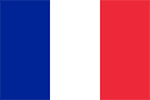Chapelle Royale - In the footsteps of the masters
CulturalThursday 26 June 2025
at 20:00
Location : Chapelle Royale
Presentation
The entire Baroque period took pleasure in ‘parodying’ and drawing inspiration from the music of the Masters, to whose limitations this programme is dedicated: Vivaldi and Rameau are the symbols of this, but it was also their ‘style’ that was copied.
The entire Baroque period took pleasure in ‘parodying’ and drawing inspiration from the music of the Masters, to whose limitations this programme is dedicated: Vivaldi and Rameau are the symbols of this, but it was also their ‘style’ that was copied.
In the last third of the 18th century, an unknown composer created a Requiem Mass from Rameau's opera Castor et Pollux. ‘Que tout gémisse’ became the beginning of the Introït, “Séjour de l'éternelle paix” the Hostias, and “Tristes apprêts” was given the words “Requiem æternam”. Far more than a simple exercise in style, this score testifies to the respect in which one of Rameau's masterpieces was held... It takes to its extreme the practice, dating back to the Middle Ages, of ‘parody’ or contrafactum, which consists of affixing new words to already existing music.
The composer Michel Corrette resorted to the same process, taking advantage of the vogue for Italian music: he adapted the words of Psalm 148 in Vivaldi's concerto Le Printemps. A worthy epigone of the Red Priest, who had himself reused the opening of his famous Four Seasons in his own opera Dorilla in Tempe!
Telemann, for his part, drank in French music and defended Castor and Pollux in his correspondence: he had no doubt heard Rameau's work during his trip to Paris, during which he played his great motet in the French style Deus Judicium: perhaps the secret hope of obtaining a post at the French Court? But it was certainly a tribute from the celebrated German musician to the French genius!
Valentin Tournet celebrates the astonishing rediscoveries in this ‘original’ programme À l'imitation des Maîtres...
In the last third of the 18th century, an unknown composer created a Requiem Mass from Rameau's opera Castor et Pollux. ‘Que tout gémisse’ became the beginning of the Introït, “Séjour de l'éternelle paix” the Hostias, and “Tristes apprêts” was given the words “Requiem æternam”. Far more than a simple exercise in style, this score testifies to the respect in which one of Rameau's masterpieces was held... It takes to its extreme the practice, dating back to the Middle Ages, of ‘parody’ or contrafactum, which consists of affixing new words to already existing music.
The composer Michel Corrette resorted to the same process, taking advantage of the vogue for Italian music: he adapted the words of Psalm 148 in Vivaldi's concerto Le Printemps. A worthy epigone of the Red Priest, who had himself reused the opening of his famous Four Seasons in his own opera Dorilla in Tempe!
Telemann, for his part, drank in French music and defended Castor and Pollux in his correspondence: he had no doubt heard Rameau's work during his trip to Paris, during which he played his great motet in the French style Deus Judicium: perhaps the secret hope of obtaining a post at the French Court? But it was certainly a tribute from the celebrated German musician to the French genius!
Valentin Tournet celebrates the astonishing rediscoveries in this ‘original’ programme À l'imitation des Maîtres...
General information
- Cultural and artistic :
- Concert
- Music :
- Lyrical arts
Contact
Chapelle Royale - A l'imitation des maîtres
Phone : +33 1 30 83 78 89
Location
Chapelle Royale
Place d'Armes Château de Versailles
78000
Versailles
- Spoken language(s) :
Prices
| Prices | Min | Max |
|---|---|---|
| 26/06/2025 - 26/06/2025 | ||
| Adult | 22.00€ | 119.00€ |
FICHE_INFO_SIMPLE_LIBELLE_DESTINATION
Place d'Armes Château de Versailles
78000
Versailles
GPS coordinates
Latitude : 48.805003
Longitude : 2.122161



